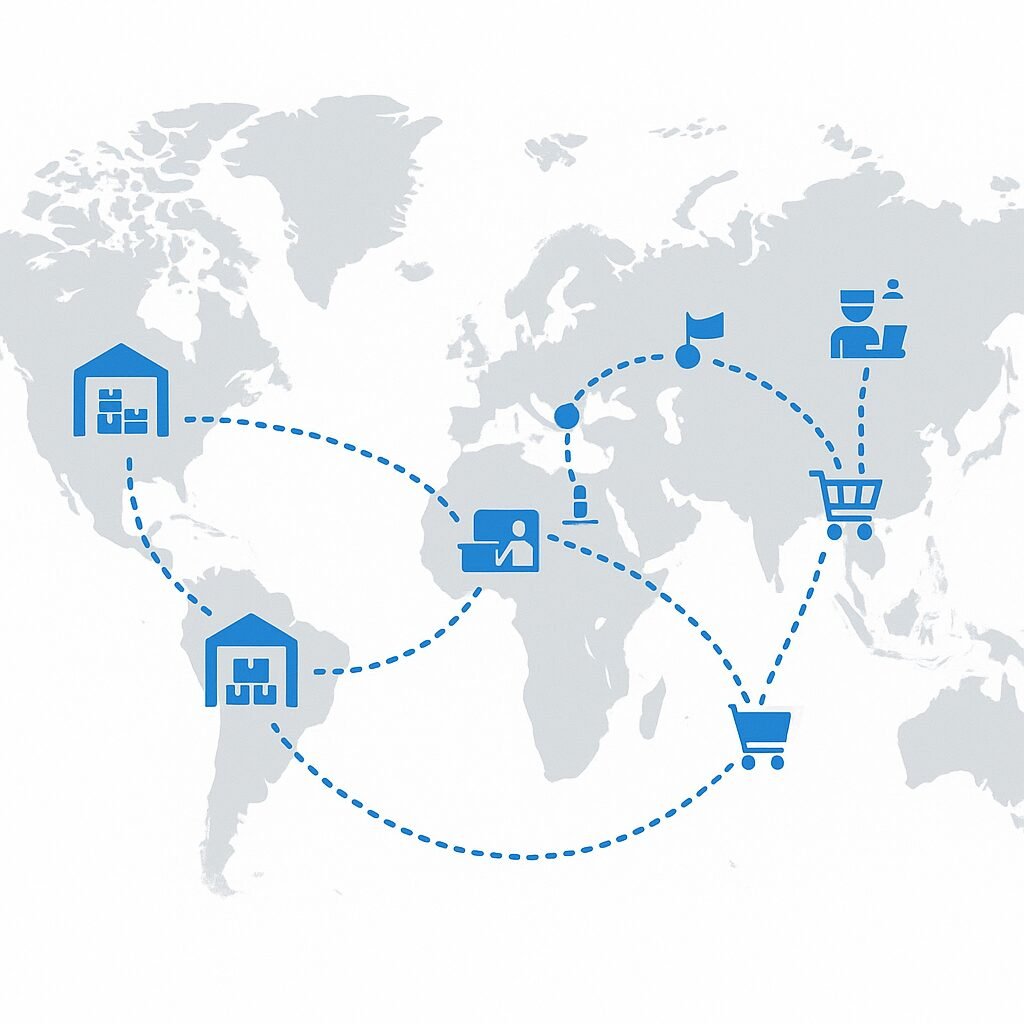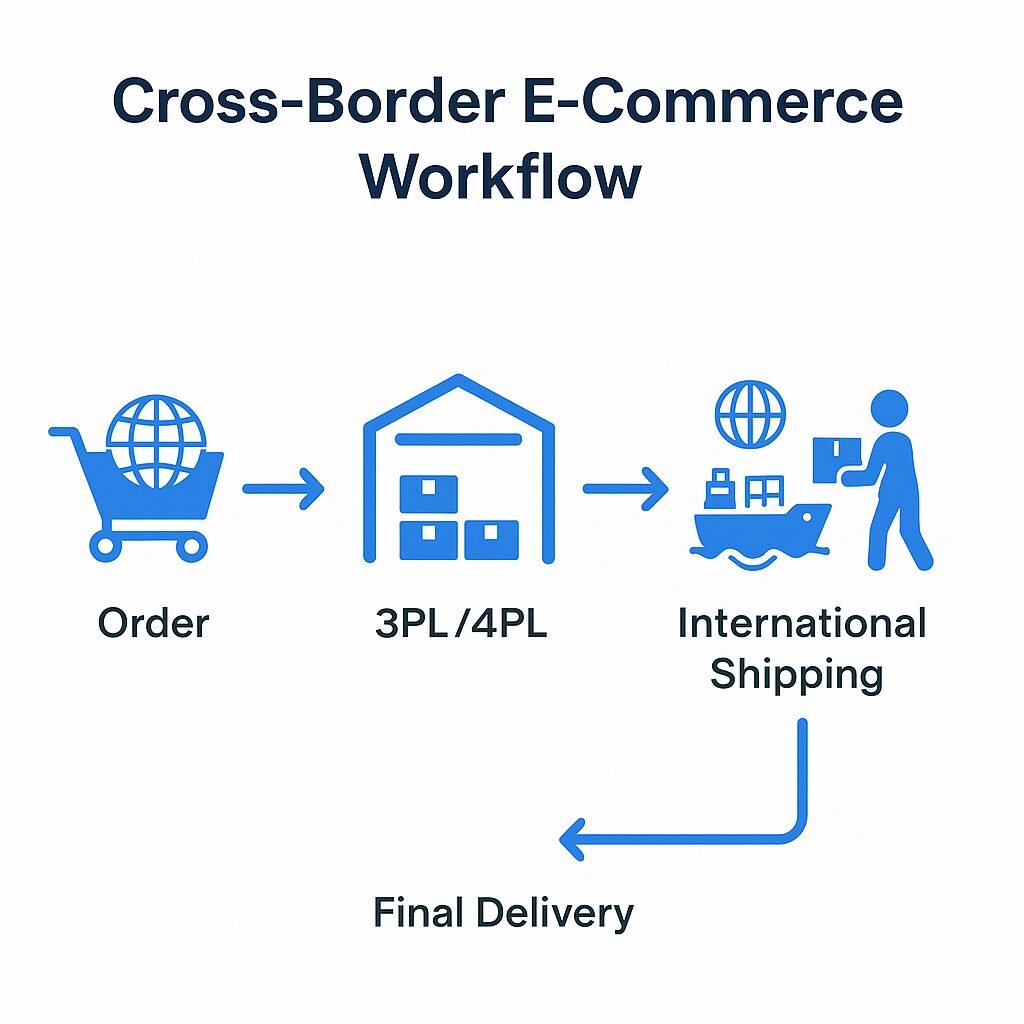
Geographical boundaries in the digital era no longer restrict business expansion. With cross-border e-commerce, businesses can have access to foreign markets in just a couple of clicks. But though going global in sales is promising, its logistics are far from being easy. Customs clearance and regulatory compliance, foreign exchange, international shipping, and customer service across multiple time zones—these are just a few of the challenges at hand. This is where Third-Party Logistics (3PL) and Fourth-Party Logistics (4PL) providers play a key role in facilitating smooth global operations.
What Are 3PL and 4PL?
3PL (Third-Party Logistics) is the third-party outsourcing of logistics services like warehousing, fulfillment, transportation, and occasionally returns. They are external logistics providers that take care of part of a business’s supply chain.
4PL (Fourth-Party Logistics), however, takes it one step further. A 4PL provider manages and oversees the overall supply chain infrastructure, usually managing multiple 3PLs. They are strategic partners, taking care of end-to-end logistics planning, optimization, and execution.
Both are vital for assisting e-commerce companies to scale across borders, but bring varying degrees of control, integration, and strategic value.

Why Logistics Is a Game-Changer in Cross-Border E-Commerce
When it comes to cross-border e-commerce, logistics can either make or break a brand’s international expansion. Shoppers want fast shipping, real-time tracking, and low shipping costs—even if the product is shipped from halfway around the globe. Delivering on these expectations largely depends on the efficiency of your logistics partners.
How 3PL Supports Cross-Border E-Commerce
International Warehousing and Fulfillment
Most 3PL suppliers have global warehouse networks, enabling companies to stock inventory near global customers. It significantly reduces delivery times and shipping expenses, thereby enhancing customer satisfaction.
Customs Clearance and Documentation
Cross-border shipping has intricate customs rules. 3PL suppliers take care of customs documents, duty computations, and compliance, reducing the likelihood of delays or fines.
Returns Management
Processing international returns can be a nightmare. 3PLs frequently offer localized return solutions, simplifying customer processes and lowering reverse logistics costs for companies.
Shipping Carrier Management
3PLs typically have access to multiple international carriers, providing businesses with access to competitive pricing and faster delivery times.
The Strategic Role of 4PL in Global E-Commerce
Whereas 3PLs are operational partners, 4PLs are strategic logistics orchestrators. This is how they facilitate cross-border success:
End-to-End Supply Chain Visibility
4PLs consolidate all elements of the supply chain, from procurement to delivery, providing companies with real-time information, analysis, and visibility into their international operations.
Multi-Vendor Coordination
A 4PL is capable of managing multiple 3PLs and carriers in multiple regions and guaranteeing that all the logistics pieces operate synergistically, which is particularly important in cross-border situations.
Regulatory Compliance and Risk Management
With different trade rules and regulations in each country, adherence becomes an essential challenge. 4PLs ensure all global trade processes conform to local and global standards and minimize risk.
Cost Optimization
Through the examination of the overall supply chain, 4PLs map out inefficiencies and suggest ways to trim costs, whether by route optimization, smarter warehousing, or enhanced inventory management.
Technology Integration
4PLs usually provide sophisticated logistics platforms that are integrated into your e-commerce platform, offering dashboards, automated tracking, and predictive analytics for better decision-making.

3PL vs 4PL: Which One to Use for Cross-Border Operations?
Select 3PL if:
- You’re a small or mid-sized e-commerce company that wants to go international.
- You require assistance with fulfillment, shipping, and returns, but want to have control over your supply chain strategy.
- You’re experimenting with a new global marketplace and require warehousing or delivery services.
Select 4PL if:
- You’re at scale and need end-to-end supply chain integration
- You’re managing multi-country complexity and multiple service providers.
- You desire strategic direction and optimization of your entire logistics operation.
Often, companies begin with a 3PL and evolve to 4PL as their business expands and becomes more sophisticated.
Final Thoughts
Cross-border e-commerce is an amazing growth prospect, but it also introduces logistical complexity. If you’re a start-up venturing into international markets or a scaled-up brand poised to go global, your prosperity rests in the hands of how robust your logistics strategy is. 3PL and 4PL providers are not service vendors—these are growth enablers.
The right logistics investment is what could take your business from expansion to stagnation. With 3PL fulfillment and operational assistance or a 4PL strategic supply chain management partner, your company will be more prepared to fulfill global demand with speed, reliability, and confidence.




